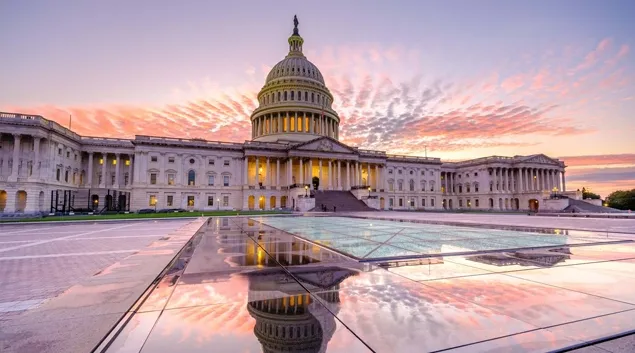
Photo: John Baggaley/Getty Images
Executives at state-based insurance exchanges have written a letter to healthcare leaders in the Senate expressing concern over the contents of the Republican-led "Big Beautiful Bill," saying proposals in the legislation would likely drive up costs for the uninsured.
Ending the premium tax credits would probably kick upward of 4 million people off their coverage, the letter said.
WHAT'S THE IMPACT
The executives cited data showing about 24 million Americans receive private health insurance through the Affordable Care Act marketplaces, and an estimated one in seven Americans have depended on the Marketplaces for coverage at some point during the 12 years since they opened.
The reconciliation package approved by the House of Representatives, the executives said, restricts access to tax credits for health insurance for new and existing Marketplace enrollees and imposes "unprecedented restrictions and administrative barriers" for consumers trying to access private health insurance.
That's compounded, they said, by the impending expiration of the updated tax credit structure, which they anticipate will result in millions becoming insured – more than one in three marketplace enrollees in some states, by their estimates.
They expect the impact of these changes will be to destabilize private health insurance markets and put the sustainability of state-based marketplaces at risk.
"Further, Marketplaces will be forced to spend millions more to implement new duplicative paperwork requirements – costs that will be passed onto Americans who depend on Marketplace coverage," the letter read.
Americans will experience higher costs through new barriers that keep people from accessing tax credits for their health insurance in real time, executives said, and the bureaucratic burdens would be extraordinary.
THE LARGER TREND
Hospital groups have largely agreed, and said last month that the GOP budget resolution would cut Medicaid coverage to millions and further hurt struggling providers.
The resolution includes at least $715 billion in cuts to Medicaid, a federal program that shares costs with states for healthcare coverage for low income families and for long-term care.
If passed, the bill would threaten the ability of the nation's financially struggling hospitals to maintain services, according to Rick Pollack, American Hospital Association president and CEO.
"The magnitude of the proposals contained in the Energy and Commerce reconciliation text represents a devastating blow to the health and well-being of our nation's most vulnerable citizens and communities. There is no avoiding the real-life consequences they will create for hospitals serving our most vulnerable and hard-working families," Pollack said.
The nonpartisan Congressional Budget Office found that the health provisions in the bill would cause at least 8.6 million Americans to lose coverage.
Jeff Lagasse is editor of Healthcare Finance News.
Email: jlagasse@himss.org
Healthcare Finance News is a HIMSS Media publication.